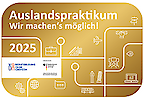
Group Leader
PD Dr. Dr. Cornelia McCormick
University Medical School Bonn
Department of Old Age Psychiatry and Cognitive Disorders
Venusberg-Campus 1
53127 Bonn, Germany
Tel.: +49 228 287 16377
Email:
What remains of me when I forget?
Imagination is more than fantasy - it is a compass for the future
In an ageing society transformed by digitalization and AI, we explore how memory and imagination shape identity and the future. Our work shows how these abilities strengthen resilience, inspire creativity, and help people to cope better with age, illness, and change. Using state-of-the-art imaging, we decipher how the brain and mind enable these processes - for a better quality of life today and tomorrow.
1. EDUCATION
2023 Specialist Examination in Psychiatry and Psychotherapy
2021 Habilitation for Experimental Psychiatry, University of Bonn
2014 PhD in Clinical Neuroscience, University of Toronto, Canada
2010 Medical Doctorate, University of Hamburg
2006 Psychology Degree, University of Hamburg
2. CURRENT POSITIONS
2024 Leader of Deparment Clinical Neuropsychology, University Hospital Bonn
2023 Psychiatrist, Department of Old Age Psychiatry and Cognitive Disorders, University Hospital Bonn
2019 Group Leader “Memory and Imagination”, University Hospital Bonn
2018 Study Physician of the Clinical Trial Unit, German Center for Neurodegenerative Diseases (DZNE), Bonn
3. PREVIOUS POSITIONS
2018 – 2023 Clinical Residency "Psychiatry and Psychotherapy", Department of Old Age Psychiatry and Cognitive Disorders, University Hospital Bonn
2014 – 2018 PostDoc, Wellcome Trust Centre for Neuroimaging, University College London, UK
4. RESEARCH AWARS AND GRANTS
2024 Advanced Clinician Scientist GRANT (ACCENT) funded by the Federal Ministry of Education and Research
2023 Advanced Clinician Scientist Neuro-aCSis Programm (German Research Foundation)
2023 Fellowship of the Hertie Network of Excellence in Clinical Neurosciences
2022 German Research Foundation Research Grant
2019 BONFOR Fellowship to establish a junior research group
2011 German Research Foundation Fellowship
Who am I - and how do I stay that way?
We explore two of the most fundamental human abilities: autobiographical memory and mental imagery. These abilities shape our identity, our emotional balance, and our future orientation.
Remembering is not just about storing information; it is about experiencing yourself as a self over time. And imagination does not just mean dreaming but designing, planning, and hoping for the future. But what happens to these abilities when the brain changes? What if memories become fragile - or were never alive? What if children document their life stories on screens before they have ever learnt to tell them?
Our work poses central social questions:
- How does the self change when memory fades?
- What role does imagination play in growing up or getting older?
- What makes us resilient?
- How can we promote memory functions through technology, sleep, and therapeutic approaches?
- What happens to memory in the digital age?
- How do media, algorithms, and floods of images change our self-perception?
Our Research Compass
Our projects are diverse. They range from studies with patients with neurodegenerative diseases and epilepsy to high-resolution imaging analyses of neuronal networks and investigations into the functions of autobiographical memory and imagination for everyday life.
We are guided by an internal compass with four directions:
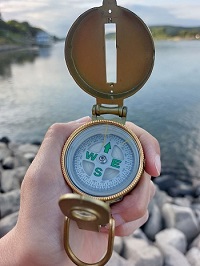
N – Narrative self-regulation & resilience
How do we narrate our lives, and what holds this narrative together?
We investigate how people locate themselves in time and which narrative patterns are related to mental health, psychological resilience, and a sense of meaning. Memory is more than a function: it is self-assurance.
E – Embodied change & vulnerability
How do memory and imagination change in neurological and psychiatric disorders - and what can we do?
We investigate disorders such as Mild Cognitive Impairment (MCI), dementia, epilepsy, and blindness. Our approaches combine functional and structural imaging with clinical psychology and interventions such as transcranial direct current stimulation (tDCS) or sleep therapy to open up new ways of diagnosis and support.
S – Subjective experience of the inner world
What does it mean to remember vividly – or to be unable to imagine anything?
We are interested in the phenomenological qualities of memory and imagination: vividness, richness of detail, and emotionality. After all, cognitive achievements only unfold their true meaning in subjective experience.
W – Wired memories: mapping neural networks
How does the brain work when we remember or imagine something - and what do the latest imaging techniques show us about this?
Using functional imaging at the highest technical level (including 7-tesla fMRI), we investigate neuronal networks and their role in autobiographical memory. In particular, we use the high resolution of the 7-tesla scanner to examine fine structures such as the hippocampal subfields in detail. Our studies combine methodological excellence with existential questions.
Ongoing Studies
Memory and imagination in old age: recognizing early warning signs
We are investigating how autobiographical memory and imagination change in older people - especially in the early stages of neurodegenerative diseases such as subjective cognitive impairment (SCD) and mild cognitive impairment (MCI). We use state-of-the-art imaging to investigate how brain stress affects these abilities. The aim is to detect memory disorders at an early stage and find new ways to promote memory and imagination.
Autobiographical memory and imagination in blind people
How do people who are blind from birth remember without visual stimuli? Our data collection is complete, and we are currently evaluating how their autobiographical memory and neural networks differ from sighted people. The results will provide new insights into the interplay of memory and imagination - also with regard to memory disorders.
Autobiographical memory and imagination in temporal lobe epilepsy
Many patients with temporal lobe epilepsy report that they can no longer remember personal experiences. We use high-resolution 7 Tesla MRI to investigate how autobiographical memory and visual imagination change and how brain networks reflect such changes - including how they try to compensate for failures.
Improving imagination and autobiographical memory in aphantasia using tDCS
In this study, we want to investigate whether transcranial direct current stimulation (tDCS) can improve imagination and autobiographical memory in people with aphantasia.
Data collection will start shortly. We look forward to hearing from anyone interested in taking part in the study.
Nadja Abdel Kafi, M. Sc.
PhD Student
I started my PhD studies within the research group in May 2024. During my Master's degree in Cognitive and Clinical Neuroscience, I was particularly fascinated by memory research. Within the working group, I am involved in research into autobiographical memory in blind individuals. At the same time, I am working on the topic of aphantasia and the question in how far visual imagination influences autobiographical memory.
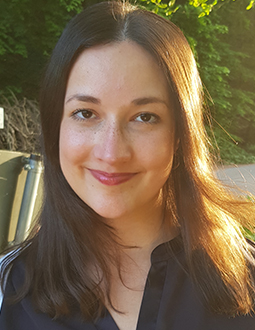
Sorit Achmed Ali, cand. Med.
MD student
My name ist Sorit Achmed Ali and I have been a medical doctoral student in the group since April 2023. Currently, I am investigating where scenes and moving images are generated in the hippocampus and which areas of the brain are involved in the processing of abstract semantic tasks. Since the beginning of my medical studies, I am interested in Neurology and Psychiatrie. Particularly learning and thought processes as well as memory formation have inspired me a lot.
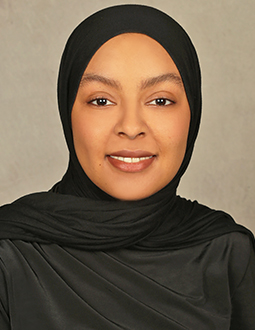
Maren Bilzer, B.Sc.
Masterstudentin
I am studying psychology in the Master's program at the University of Bonn and started an internship in the working group in January 2024. I am involved in studies investigating imagination in temporal lobe epilepsy, allowing me to combine my interest in research questions on imagination and memory with clinical psychology.
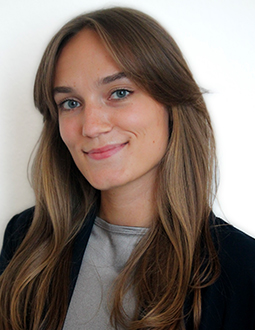
Marion Crump, Occupational Health Specialist
MD candidate
I work as a medical doctor at the University Hospital Bonn. In our research group, I am mainly involved in the study of autobiographical memory in blind individuals. I am particularly interested in the ability of non-sighted people to imagine new constructed scenes.


Malte Dommes, cand. Med.
MD student
I am working as a medical doctoral student in the McCormick research group since the beginning of 2025. My focus is on the investigation of autobiographical memory in patients with neurodegenerative dementias. To this end, I use 7T-fMRI data and behavioural tests to analyse functional differences in brain networks of autobiographical memory in patients with different forms of dementia and how these differences have an effect on the symptomatic presentation. The brain and how it works have fascinated me throughout my studies. With my doctoral thesis, I would like to deepen my knowledge in this field and lay the foundation for my entry into the field of research. After my studies, I plan to do a specialist residency in neurology or neuroradiology.


Sarah Dumitrescu, B.Sc.
Psychologie Wissenschaftliche Hilfskraft
I am pursuing a Master's degree in Psychology at the University of Trier. Since the beginning of my studies, I have been fascinated by Neuropsychology, particularly the intersection between clinical practice and research. For three years, I worked as a student assistant in Epileptology, primarily conducting neuropsychological tests with epilepsy patients. Since August 2023, I have been working as a research assistant within the group. My main tasks involve recruiting participants for various research projects and conducting MRI scans.
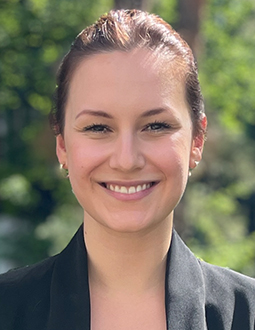
Anja Essmann, cand. Med.
MD student
After completing my training in the nursing field, I started studying human medicine at the University Bonn in September 2020. My medical internship in a neurological practice last year, strengthened my interest in neurology. Therefore, I am very happy to be part of this working group as a medical doctoral student. My project is about autobiographical memory in blind individuals. It aims to answer the research question of how individuals can remember past events and associated details without visual input. My task is to analyse data and to compare it with those of sighted participants and individuals with aphantasia.

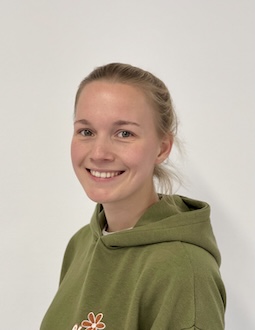
Hannah Fischer, cand. Med.
MD student
I am currently doing research for my doctoral thesis on the topic “7 Tesla functional MRI investigation of hippocampal subfield activity during autobiographical memory in Alzheimer's Dementia”. I am conducting autobiographical interviews with participants and help with the MRI examinations. My professional interests are psychiatry and neurology.


Ella Gutenberg, cand. Med.
MD student
My name is Ella Gutenberg. I am a medical student at the university of Bonn and joined the research group in September 2024. As part of my research, I focus on the analysis of resting-state-fMRI data from congenitally blind and late blind individuals. My focus lies on the examination of network connectivity between the hippocampus and other important networks. My goal is to understand how these interactions contribute to the construction and organization of autobiographical memory. With my work I hope to gain new insights into the neuroplastic adaptations of the brain in blindness. I am very interested in brain mechanisms, especially those that underlie our cognitive functions. I am fascinated by how neural networks enable complex functions such as memory, perceptions, and learning.


Christine Kindler, Dr. med. Dipl. Biol.
Specialist in Neurology
I am a specialist in Neurology with extensive experience in clinical and scientific research into neurodegenerative diseases. Since September 2024, I am a member of the research group “memory and imagination” at the University Hospital Bonn. My research focuses on the application of Dynamic Causal Modelling (DCM) to 3- and 7-Tesla-fMRI as well as PET-CT to develop a detailed neural model of autobiographical memory. The goal of my work is to characterise specific network changes in neurodegenerative diseases, such as Alzheimer’s disease (AD), the behavioural variant of frontotemporal dementia, and posterior cortical atrophy. Furthermore, I study the influence of biomarkers on these networks. A central aim of my research is to determine the clinical relevance of these changes to improve the prognosis, the Staging, and the treatment options for neurodegenerative diseases.
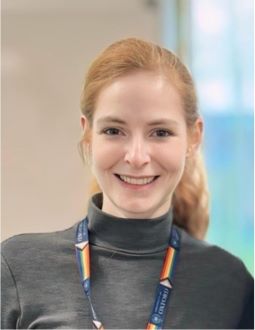
Pitshaporn Leelaarporn (Lilly), PhD
PostDoc
My academic path began with me switching from fundamental research labs, mostly using cell lines and rodent models, to clinical research, using EEG in a medical engineering lab. I made yet another switch to fMRI. My projects revolve around examining the ability to recall autobiographical memories in various sample groups including healthy individuals, aphantasia, dementia, and epilepsy patients with memory deficits. Acquiring data using the high resolution 7 Tesla MRI scanner, I can look at the human brain, specifically the hippocampus where it evidently functions as the central hub of our memory and scene processing system. Observing how our brain responds to various tasks piques my interest.
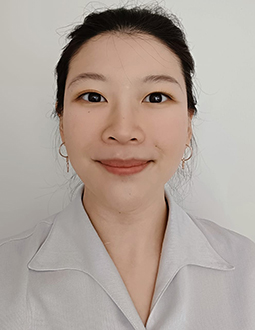
Marie Malinowski, cand. Med.
MD student
My name is Marie Malinowski and I am studying medicine at the University of Bonn. I joined the research group as a doctoral student in December 2023. I am researching autobiographical memory and mental imagery in blind people. My doctoral thesis examines the question in how far congenital and acquired blindness affects the neural networks of our cognition of “scene construction”. Scene construction is the ability to imagine novel and vivid scenarios in a detailed way. Since particularly congenitally blind people have no access to visual information, it is intriguing to find out, which neuronal networks become activated when these mental images are generated. My tasks: I am involved in the organisation and evaluation of the project. I recruit participants, organize their stay and take care of the MRI measurements and interviews. In addition to collecting data, I am also responsible for analyzing and evaluating the fMRI data. My interests: As I am particularly interested in the fields of neurology and ophthalmology, I am grateful to be able to combine both disciplines as part of my doctoral thesis. I am particularly enthusiastic about working with blind participants and the opportunity to contribute to research into this rare and valuable participant group.


Jannika Oswald, cand. Med.
MD student
My name is Jannika Oswald and I am studying medicine at the University of Bonn. In January 2025 I have started working as a student assistant at the University Hospital Bonn and have been a doctoral student since April 2025 in the “Memory and Imagination” research group led by PD Dr. Dr. C. McCormick. As part of my dissertation, I am exploring the subjective well-being (SWB) of individuals along the Alzheimer's continuum (subjective cognitive impairment (SCD), mild cognitive impairment (MCI), mild dementia in Alzheimer's disease) under the supervision of Dr. Carolin Miklitz. The aim of my work is to examine the prevalence of SWB at different stages of the disease and to explore its impact on the progression of cognitive performance. Given the marked rise in Alzheimer's cases, it is worth considering whether these results provide any indications for preventive care.

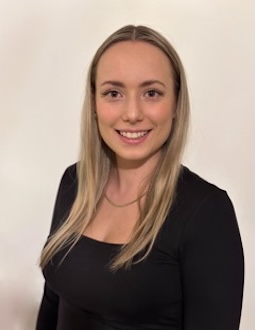
Simon Sterk, cand. Med.
MD student
My name is Simon Sterk, and since the beginning of 2025, I have been working as a medical doctoral candidate in the research group "Memory and Imagination" led by PD Dr. Cornelia McCormick. My research focuses mainly on the analysis and interpretation of resting-state fMRI data, particularly from patients with varying stages of cognitive impairments and Dementia in Alzheimer's Disease. Our goal is to determine the effects of a COVID-19 infection on neural networks and the functional connectivity of the brain. Through my research, I aim to advance our understanding of how infections, particularly COVID-19, influence brain networks and functional connectivity in individuals with Alzheimer's disease and other dementias and I hope to contribute to Alzheimer's research.


Julia Taube, PhD
PostDoc
I am a dedicated researcher with a strong background in neuropsychology and epilepsy research, currently working as a Postdoctoral Researcher at the Department of Old Age Psychiatry and Cognitive Disorders at University Hospital Bonn. I am fortunate to be mentored by PD Dr. Dr. C. McCormick, where I focus on exploring the intricate interplay between memory and imagination. My expertise also extends to project management, highlighted by my co-leadership role in the Neuropsychology Taskforce of the European Reference Network EpiCARE from 2016 to 2024, where I led efforts in neuropsychological assessment for rare and complex epilepsies. My academic journey began with a strong foundation in psychology, culminating in my Ph.D. in Medical Psychology from the University of Bonn. My diverse research interests include changes in visual imagery and autobiographical memory throughout the course of illness and treatment, examined through fMRI studies and qualitative interviews. Various neurological conditions such as epilepsy and dementia take center stage in this research.
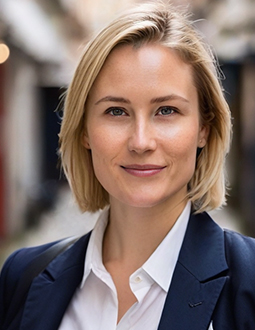

Alumni
Sven Lange, cand. M.Sc.
Teresa Lutz, M.Sc.
Prishita Sharma, B.Sc.
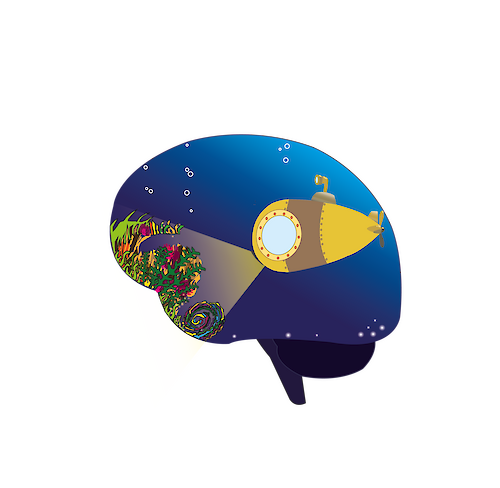
We have following news to announce...:
We will start with the organization of our second Science Meeting soon!
Lilly has successfully defended her PhD thesis entitled: "Hippocampal-dependent episodic memory and its relation to visual-perceptual processing"!
We have completed the data collection of our AMBLIND study.
Malte Dommes received a stipend from the HIRNLIGA . Congratulations!
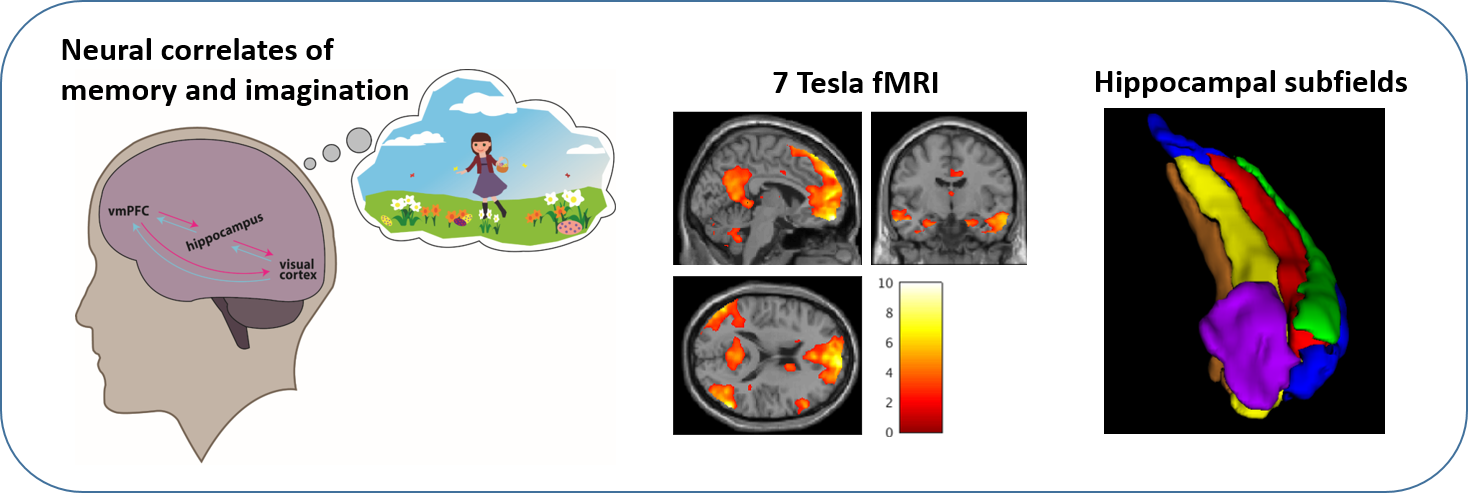
- McCormick, C., & Lange, S. Missing Images: Autobiographical Memory in Aphantasia and Blindness. Frontiers in Cognition, 4, 1644533.
- Ali, S. A., Leelaarporn, P., Stirnberger, R., Bilzer, M., Abdel Kafi, N., Taube, J., ... & McCormick, C. (2026). Seeing more than schemas: the vmPFC represents imagery-rich mental scenarios. Neuropsychologia, 109370.
- Kindler, C., Taube, J., Leelaarporn, P., Stirnberg, R., & McCormick, C. (2025). Elucidating directed neural dynamics of scene construction across memory and imagination. Preprint. bioRxiv, 2025-07.
- Taube, J., Leelaarpron, P., Bilzer, M., Stirnberg, R., Sagik, Y., & McCormick, C. (2025). From single scenes to extended scenarios: the role of the ventromedial prefrontal cortex in the construction of imagery-rich events. Preprint. bioRxiv, 2025-05.
- Leelaarporn, P., Dalton, M. A., Stirnberg, R., Stoecker, T., Spottke, A., Schneider, A., & McCormick, C. Hippocampal subfields and their neocortical interactions during autobiographical memory using submillimeter whole-brain fMRI at 7 Tesla. Imaging Neuroscience 2: 1–13. https://doi.org/10.1101/2022.05.03.490407
- Monzel, M., Leelaarporn. P., Lutz, T., Schultz, J., Brunheim, S., Reuter, M., McCormick, C. Hippocampal-occipital connectivity reflects autobiographical memory deficits in aphantasia. eLife, 13. https://doi.org/10.7554/eLife.94916.1
- McCormick, C., Maguire, E.A. (2021) The distinct and overlapping brain networks supporting semantic and spatial scene processing. Neuropsychologia. 158: 107912. https://doi.org/10.1016/j.neuropsychologia.2021.107912
- McCormick, C., Dalton, M.A., Zeidman, P., Maguire, E.A. (2021) Characterising the hippocampal response to perception, construction, and complexity. Cortex. 137:1-17. https://doi.org/10.1016/j.cortex.2020.12.018
- McCormick, C., Barry, D.N., Jafarian, A., Barnes, G.R., Maguire, E.A. (2020) vmPFC drives hippocampal processing during autobiographical memory recall regardless of remoteness. Cerebral Cortex. 30(11), 5972-5987. https://doi.org/10.1093/cercor/bhaa172
- Spanò, G., Pizzamiglio, G., McCormick, C., Clark, I.A., De Felice, S., Miller, T.D., Edgin, J.O., Rosenthal, C.R., Maguire, E.A. (2020) Dreaming with hippocampal damage. Elife.9:e56211. https://doi.org/10.7554/eLife.56211
- Spanò, G., Weber, F.D, Pizzamiglio, G., McCormick, C., Miller, T.D., Rosenthal, C.R., Edgin, J.O., Maguire, E.A. (2020) Sleeping with hippocampal damage. Current Biology. 30:523-529. https://doi.org/10.1016/j.cub.2019.11.072
- Fließbach, K., McCormick, C., Kaulen, B., Schneider, A. (2019) Anti-tau therapies – what can be expected? Nervenarzt. 90:891-897.
- De Luca, F., McCormick, C., Ciaramelli, E., Maguire, E.A. (2019) Scene processing following damage to the ventromedial prefrontal cortex. Neuroreport 30:828-833
- Dalton M.A., McCormick, C., De Luca, F., Clark, I.A., Maguire, E.A. (2019) Functional connectivity along the anterior-posterior axis of hippocampal subfields in the ageing human brain. Hippocampus. 11:1049-1062.
- Ciaramelli, E., De Luca, F., Monk, A., McCormick, C., Maguire E.A. (2019) What "wins" in VMPFC: scenes, situations, or schema? Neuroscience & Biobehavioural Reviews. 100:208-2010
- Dalton, M.A., McCormick, C., Maguire, E.A. (2019) Differences in functional connectivity along the anterior-posterior axis of human hippocampal. NeuroImage. 192:38-51
- De Luca, F., McCormick, C., Mullally, S.L., Intraub, H., Maguire, E.A., Ciaramelli, E. (2018) Boundary extension is attenuated in patients with ventromedial prefrontal cortex damage. Cortex. 108:1-12
- Dalton, M.A., Zeidman, P., McCormick C., Maguire, E.A. (2018) Mental imagery of scenes, objects and space: deconstructing the neural correlates of scene construction. Journal of Neuroscience. 38 (38):8146-8159
- McCormick, C., Rosenthal, C.R., Miller, T.D., Maguire, E.A. (2018) Mind-wandering in people with hippocampal damage. Journal of Neuroscience. 38(11):2745-2754
- McCormick, C., Ciaramelli, E., De Luca, F., Maguire, E.A. (2018) Common and differential cognitive changes following ventromedial prefrontal cortex and hippocampal damage: a review of human lesion studies. Neuroscience, Forefront Review. (Invited review). 374:295-318
- McCormick, C., Moscovitch, M., Valiante, T., Cohn, M., McAndrews, M.P. (2018) Different neural routes to autobiographical memory recall in healthy people and individuals with left medial temporal lobe epilepsy. Neuropsychologia. 110:26-36
- McCormick, C., Rosenthal, C.R., Miller, T.D., Maguire, E.A. (2017) Deciding what is possible and impossible following hippocampal damage in humans, Hippocampus, 27(3), 303-314
- McCormick, C., Rosenthal, C.R., Miller, T.D., Maguire, E.A. (2016) Hippocampal damage increases deontological responses during moral decision making, Journal of Neuroscience, 36, 12157-12167
- McAndrews, M.P., Girard, T.A., Wilkins, L.K., McCormick, C. (2016) Semantic congruence affects hippocampal response to repetition of visual associations, Neuropsychologia, 90, 235-242
- Adnan, A., Barnett, A., Moayedi, M., McCormick, C., Cohn, M., McAndrews, M.P. (2016) Distinct hippocampal functional networks revealed by tractography-based parcellation, Brain Structure and Function, 221(6), 2999-3012
- McCormick, C., St-Laurent, M., Ty, A., Valiante, T., McAndrews, M.P. (2015) Functional and effective hippocampal-neocortical connectivity during construction and elaboration of autobiographical memory retrieval, Cerebral Cortex, 25:1297-305
- McCormick, C., Protzner, A.B., Barnett, A.J., Cohn, M., Valiante, T.A., McAndrews, M.P. (2014) Linking DMN connectivity to episodic memory capacity: what we can learn from patients with medial temporal lobe damage? Neuroimage: Clinical, 5:188-96
- St-Laurent, M., McCormick, C., Cohn, M., Mišić, B., Giannoylis, I., McAndrews, M.P. (2014) Using multivariate data reduction to predict post-surgery memory decline in patients with mesial temporal lobe epilepsy, Epilepsy & Behavior, 31:220-7
- Quraan, M., McCormick, C., Cohn, M., Valiante, T.A., McAndrews, M.P. (2013) Altered resting state brain dynamics in temporal lobe epilepsy: a survey of spectral power, functional connectivity and graph theory metrics, Plos One, 8(7): e68609
- McCormick, C., Quraan, M., Cohn, M., Valiante, T.A., McAndrews, M.P. (2013) Default mode network connectivity indicates episodic memory capacity in mesial temporal lobe epilepsy, Epilepsia, 54(5): 809-18
- O’Neil, E.B., Protzner, A.B., McCormick, C., McLean, D.A., Poppenk, J., Cate, A.D., Koehler, S. (2012) Distinct Patterns of Functional and Effective Connectivity between Perirhinal Cortex and Other Cortical Regions in Recognition Memory and Perceptual Discrimination, Cerebral Cortex, 22(1): 74-85
- Protzner, A.B., Valiante, T.A., Kovacevic, N., McCormick, C., McAndrews, M.P. (2010) Hippocampal Signal Complexity in Mesial Temporal Lobe Epilepsy: A Noisy Brain is a Healthy Brain, Archives italiennes de biologie, 148(3):289-97
- McCormick, C., Moscovitch, M., Protzner, A.B., Huber, C.G., McAndrews, M.P. (2010) Hippocampal-neocortical networks differ during encoding and retrieval of relational memory: Functional and effective connectivity, Neuropsychologia, 48(11): 3272-3281
- Bengner, T., Fortmeier, C. et al. (2006), Sex differences in face recognition memory in patients with temporal lobe epilepsy, generalized epilepsy and healthy controls. Epilepsy & Behavior, 9 (4): 593-600 [Under my maiden name Fortmeier]









